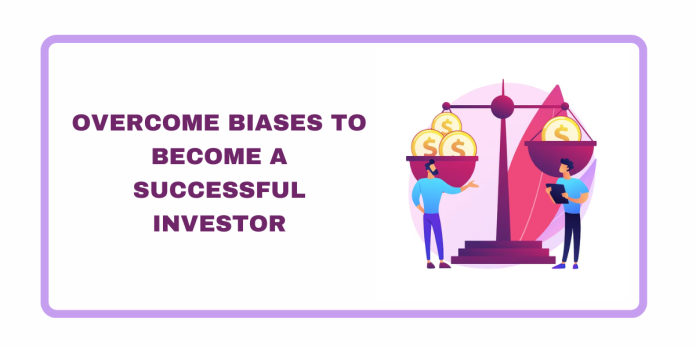While it is often assumed that the world and its participants are rational individuals who seek to prudently maximize their wealth, in reality, emotions, and psychology frequently exert a strong influence on our decisions, leading to unpredictable and irrational behaviour. Benjamin Graham, known as the Dean of Wall Street, emphasized in his well-known book ‘The Intelligent Investor’ that markets are characterized more by psychology than pure logic. Behavioural finance, a relatively recent addition to the field of finance, seeks to integrate behavioural and psychological theories with traditional economics and finance, aiming to offer insights into why individuals often make irrational financial decisions.
In this article, we explore some of the behavioural biases that influence our investment decisions. Let’s explore each in detail.
Loss-aversion bias: Loss aversion refers to an investor’s tendency to strongly prefer avoiding losses over acquiring gains. The fear of loss leads to inaction. Studies show that the pain of loss is twice as strong as the pleasure of gain of a similar magnitude. Investors prefer to do nothing despite information and analysis favouring a particular action that, in the investor’s mind, may lead to a loss. Holding onto losing stocks and avoiding riskier asset classes like equity, when there is a lot of information and discussion going around about market volatility, are manifestations of this bias. In such situations, investors tend to frequently evaluate their portfolio’s performance, and any short-term loss seen in the portfolio makes inaction their preferred strategy.
Know: Portfolio Management vs Wealth Management
Confirmation bias: Confirmation bias, also called my-side bias, is the tendency to search for, interpret, or prioritize information in a way that confirms one’s beliefs or hypotheses. It is a type of cognitive bias and a systematic error in inductive reasoning. For example, when a trader buys a stock for a specific reason, and that reason doesn’t work out, the trader may make up another reason to justify holding the position. Similarly, we often make decisions in our minds and then seek information to validate those intuitive decisions.
Ownership bias: Ownership bias also known as the endowment effect, is the tendency to place a higher value on things we own than others would. It can cause investors to hold positions that they would not buy at the current level.
Gambler’s fallacy: Predicting random events based on what happened in the past or making trends when there exists none. It is the mistaken belief that if something happens more frequently than normal during some period, it will happen less frequently in the future, or if something happens less frequently than normal during some period, then it will happen more frequently.
Winner’s curse: Tendency to make sure that a competitive bid is won even after overpaying for the asset. While behaviourally it is a win, financially, it may be a loss.
Herd mentality: It is a common behavioural disorder within the investing community. This bias arises from uncertainty and the belief that others may possess better information, leading investors to follow the investment choices made by others. While these choices may appear correct and even be justified by short-term performance, they often contribute to the formation of bubbles and subsequent crashes. Small investors tend to monitor other participants for confirmation and often end up entering the market when it is overheated and poised for correction. As economist John Maynard Keynes once said, ‘It is better for reputations to fail conventionally than to succeed unconventionally.
Read: Controlling Greed and Fear in Volatile Markets


